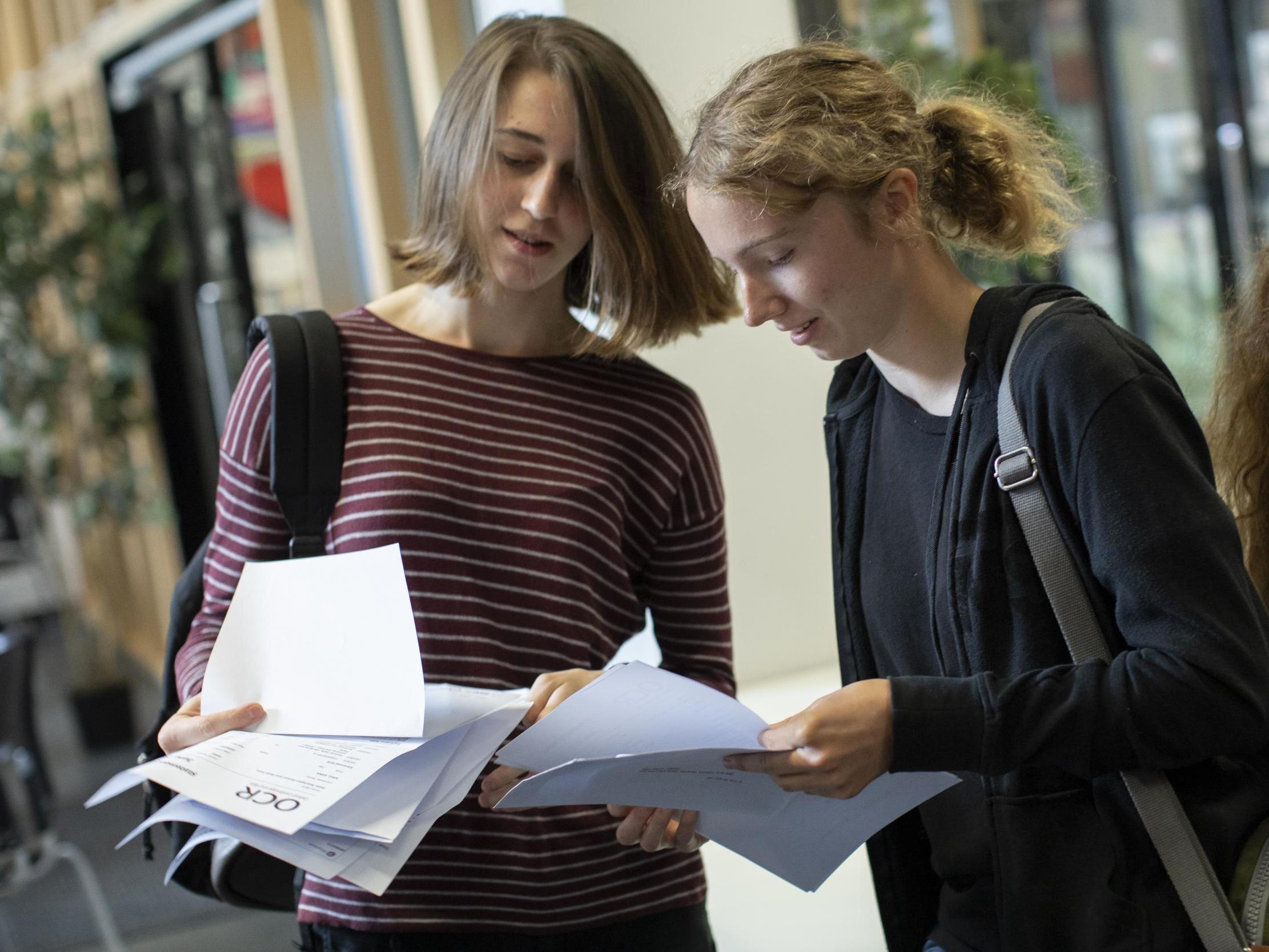GCSE and A-Level results expected to be higher this summer after exams cancelled
Number of students receiving good grades will be two per cent higher at A-level and one per cent at GCSE, says Ofqual

GCSE and A-level results will be higher than normal this summer, England’s exams regulator has said, after tests were cancelled due to the coronavirus pandemic and schools asked to submit predicted grades.
The watchdog Ofqual has said it is “not surprising” that grades calculated by many schools and colleges were more optimistic, as teachers “naturally want to do their best for their students”.
The number of students receiving good grades will be two per cent higher at A-level and one per cent at GCSE, Ofqual added.
But they will be much lower than the predictions provided teachers, which have would have seen A-level and GCSE results pushed up by 12 per cent and nine per cent respectively compared to 2019.
“Improvement on such a scale in a single year has never occurred and to allow it would significantly undermine the value of these grades for students,” the regulator warned.
Ofqual has said it expects almost all grades that students receive to be the same as the centre assessment grades “or within one grade.”
“Results for students will therefore almost always be broadly in line with centres’ and teachers’ expectations, reflecting the skills, professionalism and integrity of those involved,” they said.
Earlier this month, the Commons Education Select Committee warned that some disadvantaged pupils could be discriminated against under the current system.
The MPs said it was “concerned” that poorer pupils, black, Asian and minority ethnic (BAME) students, and children with special educational needs and disabilities (Send) “could be disadvantaged” by calculated grades.
But on Tuesday, Ofqual said their analysis found that “there will generally be no widening of the gaps in attainment between different groups of students”.
“The concern that identifiable groups of students would lose out from this year’s arrangements have not been borne out,” the watchdog.
Geoff Barton, general secretary of the Association of School and College Leaders, said: “With thousands of schools and colleges assessing millions of GCSE and A-level grades, it would have been incredible if every grade had perfectly matched a national statistical model, and there were always bound to be adjustments.
“This was recognised from the outset with schools being asked to rank pupils so that adjustments could be made either down or up when exam boards standardised the grades.”
He added: “We can assure parents and pupils that schools and colleges set about the task of grading and ranking pupils in unprecedented circumstances with the utmost diligence and care.”
Additional reporting by PA
Join our commenting forum
Join thought-provoking conversations, follow other Independent readers and see their replies
Comments